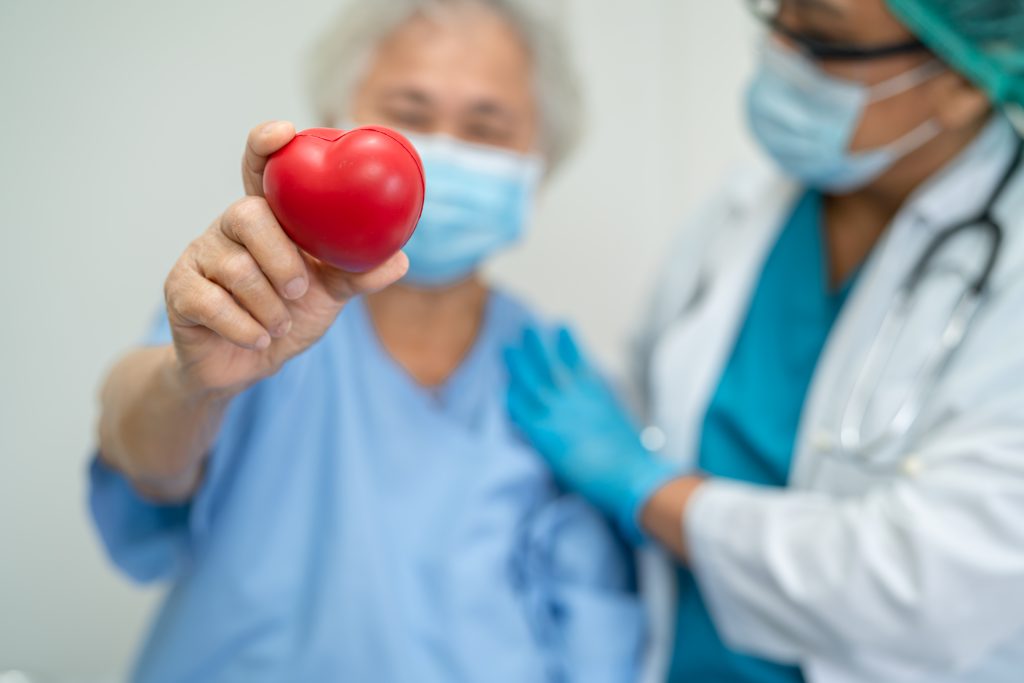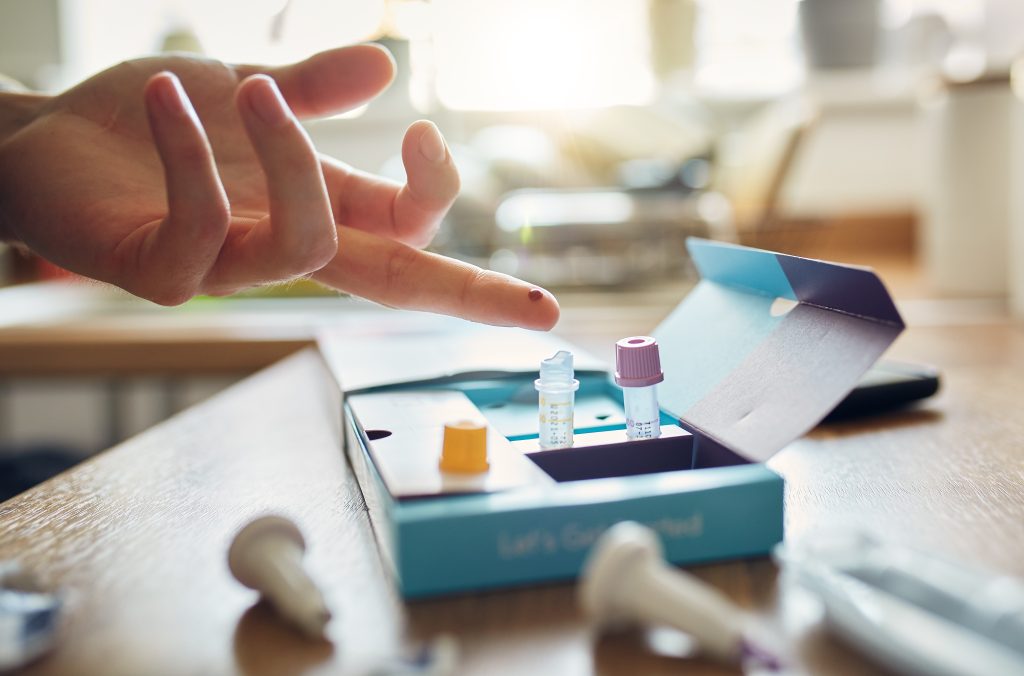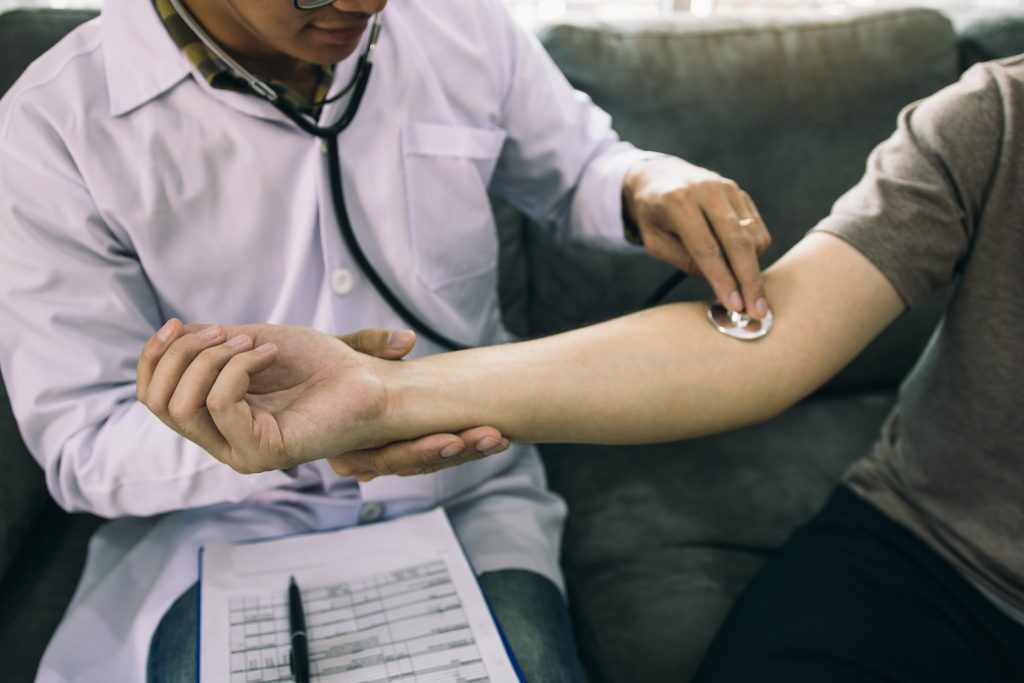Cholesterol Tests Explained: Why, How, and Where to Get Tested in Singapore

Managing your cholesterol levels is a vital step in keeping your heart happy and healthy! With cardiovascular diseases being one of the leading causes of death worldwide, keeping an eye on those cholesterol numbers should be a top priority (WHO, 2021). But what exactly is cholesterol? Why do we need those pesky tests? And where can you get tested in Singapore? Let’s break it all down!
What Is Cholesterol?
Cholesterol is a type of fat (lipid) that your body needs to build healthy cells (NHLBI, 2022). However, too much of certain types can cause trouble, leading to a buildup of fatty deposits in your arteries. This may increase the risk of stroke and heart disease—yikes! (Mayo Clinic, 2023).

What are the 2 cholesterol types:
- Low-Density Lipoprotein (LDL): Often dubbed “bad” cholesterol, high levels can lead to plaque formation in your arteries. Not good! (Onaolapo et al., 2024).
- High-Density Lipoprotein (HDL): considered as “good” cholesterol, HDL helps remove negative substances from your system. Think of it as your cholesterol superhero! (Onaolapo et al., 2024).
Why Do You Need a Cholesterol Test?
A cholesterol test—often part of a cholesterol test kit or lipid panel—measures your HDL, LDL, total cholesterol levels, and triglycerides (another type of fat in your blood) (CDC, 2024). Regular monitoring is essential because symptoms of high cholesterol often go unnoticed until it’s too late (Harvard Health Publishing, 2023). It’s possible to have dangerously high levels without a clue, which can ramp up your risk of heart disease (NHLBI, 2022).

Adults aged above 20 should get their cholesterol checked every 4-6 years (Fletcher, 2023). If you have health conditions like diabetes or a family history of heart problems, you might need to get tested more often.
Cholesterol Meds: What Do They Do?
If your cholesterol levels are high, lifestyle changes like diet and exercise can help, but sometimes you might need to turn to cholesterol meds (NHLBI, n.d). Here are some common types:
- Atorvastatin: This well-known statin works wonders by decreasing the cholesterol your liver produces. It’s known for effectively lowering LDL levels, with Lipitor being a well-known brand (Mayo Clinic, 2023).
- Rosuvastatin and Simvastatin: Similar to atorvastatin, these statins also help lower cholesterol but may act differently based on your individual response (Feingold, 2024). Crestor is a notable brand for rosuvastatin.
- Fenofibrate: This one focuses on reducing triglycerides while boosting HDL levels—ideal for those struggling with high triglycerides (Mayo Clinic, n.d.).
These medications can come with side effects, so it’s crucial to have an open chat with your doctor about the best options for you.
How to Get Your Cholesterol Tested in Singapore

Good news: getting your cholesterol tested in Singapore is a breeze! You can get it done by:
- Scheduled Health Screening: Most general health screenings at private clinics, hospitals, or polyclinics include a lipid panel to check your cholesterol levels. Places like Raffles Medical, Healthway Medical, and Fullerton Health offer comprehensive screenings that cover multiple health aspects in one visit (Health Promotion Board, 2024).
- Polyclinics: For a wallet-friendly option, head to a polyclinic (like those run by SingHealth or National Healthcare Group). They offer subsidized rates, especially for Singaporean citizens and permanent residents.
- GP Clinics: Many neighborhood GP clinics provide cholesterol tests as part of routine check-ups or upon request. Prices vary, but they are generally accessible and convenient.
- Home-Based Testing: Prefer testing in your pajamas? Mobile health screening services will be only at the tip of your finger! They’ll take a blood sample, and you’ll get your results electronically or by mail.
- Insurance and Work-Based Health Screening: Some insurance plans or employers offer regular health screenings, often including cholesterol checks. Check if your plan covers these tests as part of a preventive health package.
Getting Ready for Your Cholesterol Test
Prepping for your cholesterol test is a piece of cake (or maybe not!). You may be asked to fast for 9-12 hours beforehand—just water, please! This fasting ensures your blood results accurately reflect your cholesterol levels (Medical News Today, 2023).
Once your test is complete, your healthcare provider will walk you through the different parts of your lipid profile. If your cholesterol levels are outside the recommended ranges, don’t panic! Treatments through lifestyle changes or medications like atorvastatin or fenofibrate can help you regain a healthy balance (Bernstein, 2023).
What to Do After Your Test
If your cholesterol levels are normal—high five! Keep up those healthy habits like:
Eating a balanced diet


Staying active
Getting regular cholesterol checks

If your levels are elevated, talk with your doctor to devise a treatment plan, which may involve dietary adjustments, exercise, or starting medications like rosuvastatin (Crestor) or atorvastatin (Lipitor), depending on your unique needs.
Conclusion
Getting your cholesterol tested is quick, simple, and essential for long-term heart health. Whether you choose to visit a clinic or opt for a cholesterol meter at home, regularly tracking your cholesterol levels empowers you to take control of your heart health and overall well-being. And remember, even if your cholesterol is high, your healthcare provider can help you navigate solutions like diet, exercise, or medications such as fenofibrate, simvastatin, or atorvastatin to get you back on track.
In Singapore, finding where to get your cholesterol tests done is a walk in the park, so don’t delay—your heart will thank you!
References
- World Health Organization (WHO). “Cardiovascular Diseases (CVDs).” World Health Organization, 2024. https://www.who.int/news-room/fact-sheets/detail/cardiovascular-diseases-(cvds) | Accessed on November 5, 2024.
- National Heart, Lung, and Blood Institute (NHLBI). “Cholesterol Fact Sheet.” National Heart, Lung, and Blood Institute, 2022. https://www.nhlbi.nih.gov/sites/default/files/publications/THT-CholesterolFactSheet.508.%20FINAL.pdf | Accessed on November 5, 2024.
- Mayo Clinic. “High Blood Cholesterol: Symptoms and Causes.” Mayo Clinic, 2023. https://www.mayoclinic.org/diseases-conditions/high-blood-cholesterol/symptoms-causes/syc-20350800 | Accessed on November 5, 2024.
- Onaolapo, M. C., Alabi, O. D., Akano, O. P., Olateju, B. S., Okeleji, L. O., Adeyemi, W. J., & Ajayi, A. F. (2024). Lecithin and cardiovascular health: a comprehensive review. PMC, https://pmc.ncbi.nlm.nih.gov/articles/PMC11246377/ | Accessed on November 5, 2024.
- Centers for Disease Control and Prevention (CDC). (2024). Cholesterol testing. CDC. https://www.cdc.gov/cholesterol/testing/index.html | Accessed on November 5, 2024.
- Harvard Health Publishing. (2023). High cholesterol (hypercholesterolemia). Harvard Health. https://www.health.harvard.edu/a_to_z/high-cholesterol-hypercholesterolemia-a-to-z | Accessed on November 5, 2024.
- National Heart, Lung, and Blood Institute. (2022). Calculating the risks of heart disease. National Heart, Lung, and Blood Institute. https://www.nhlbi.nih.gov/news/2022/calculating-risks-heart-disease | Accessed on November 5, 2024.
- Fletcher, J. (2023). What should my cholesterol level be at my age? Medical News Today. https://www.medicalnewstoday.com/articles/315900 | Accessed on November 5, 2024.
- National Heart, Lung, and Blood Institute. (n.d.). Cholesterol fact sheet. https://www.nhlbi.nih.gov/sites/default/files/publications/THT-CholesterolFactSheet.508.%20FINAL.pdf | Accessed on November 5, 2024.
- Mayo Clinic. (2023). Statin side effects: Weigh the benefits and risks. https://www.mayoclinic.org/diseases-conditions/high-blood-cholesterol/in-depth/statin-side-effects/art-20046013 | Accessed on November 5, 2024.
- Feingold, K. R. (2024). Cholesterol Lowering Drugs. In StatPearls [Internet]. https://www.ncbi.nlm.nih.gov/books/NBK459207/ | Accessed on November 5, 2024.
- Mayo Clinic. (n.d.). Fenofibrate (Oral Route). https://www.mayoclinic.org/drugs-supplements/fenofibrate-oral-route/description/drg-20068427 | Accessed on November 7, 2024.
- Health Promotion Board. (n.d.). Screen for Life. https://hpb.gov.sg/healthy-living/preventive-health/screenforlife | Accessed on November 7, 2024.
- Medical News Today. (2023, August 9). What to eat the night before a cholesterol test: What to eat and more. https://www.medicalnewstoday.com/articles/what-to-eat-the-night-before-a-cholesterol-test-what-to-eat-and-more | Accessed on November 7, 2024.
- Bernstein, S. (2023). Cholesterol Treatment: Medication and Lifestyle Changes. WebMD. https://www.webmd.com/cholesterol-management/cholesterol-treatment-lifestyle-medication | Accessed on November 7, 2024.
FAQ
In Singapore, you can check your cholesterol level through a blood test that measures total cholesterol, LDL (bad cholesterol), HDL (good cholesterol), and triglycerides. These tests are usually done at clinics, hospitals, or diagnostic centers.
You can get your cholesterol checked at general practitioner (GP) clinics, hospitals, medical centers, or specialized diagnostic laboratories. Many health screenings offered at these places include a cholesterol test.
The cost of a cholesterol test in Singapore typically ranges from SGD 20 to SGD 50, depending on the type of test and whether it is part of a broader health screening package. Some comprehensive health screenings may include multiple tests at a higher cost.
High cholesterol often has no obvious symptoms, but in some cases, you may notice:
- Chest pain or discomfort (angina), indicating a risk of heart disease.
- Fatty deposits under the skin, called xanthomas, which are yellowish lumps.
- Corneal arcus, a white or gray ring around the cornea of the eye.
- Shortness of breath, which can be a sign of heart problems.
- Numbness or weakness in the limbs, a possible sign of stroke risk.
Some pharmacies in Singapore offer basic cholesterol tests, which are quick and may provide a rough estimate of your cholesterol levels. However, these are not as comprehensive as lab tests, and for accurate results, a full blood test at a clinic or hospital is recommended.
Yes, you can get a cholesterol test without a doctor at certain walk-in clinics, health screenings, or pharmacies that offer testing services. You may also use home testing kits that require a finger prick to collect your blood sample. However, for a prescription, precise results or to discuss treatment options, you’ll need to consult a healthcare provider.
While significant changes in cholesterol levels take time, you can take some quick steps to start improving your cholesterol in a week:
- Eat a heart-healthy diet rich in fruits, vegetables, whole grains, and healthy fats (like omega-3s from fish).
- Exercise regularly (aim for at least 30 minutes most days).
- Avoid trans fats and reduce saturated fats found in red meat, butter, and processed foods.
- Increase fiber intake, which helps lower LDL cholesterol.
- Quit smoking and limit alcohol consumption, both of which can negatively affect cholesterol.
Normal cholesterol levels can vary slightly by age and gender, but general guidelines are:
- Total cholesterol: Below 5.2 mmol/L
- LDL (bad cholesterol): Below 3.4 mmol/L
- HDL (good cholesterol): Above 1.0 mmol/L for men, above 1.3 mmol/L for women
- Triglycerides: Below 1.7 mmol/L
Older adults may have slightly higher acceptable levels, but maintaining a healthy balance is key.
Eggs have been a topic of debate for cholesterol levels. While eggs do contain cholesterol, research shows that for most people, eating eggs does not significantly raise blood cholesterol levels. In fact, eggs can be part of a healthy diet when consumed in moderation. However, if you have high cholesterol or heart disease, it’s best to limit yolk intake and focus on other sources of protein.
Before a cholesterol test, it’s recommended to fast for 9-12 hours (no food or drink except water) to ensure accurate results, especially for the LDL and triglyceride readings. Avoid heavy meals, alcohol, and strenuous exercise right before the test, as these can temporarily affect cholesterol levels.












